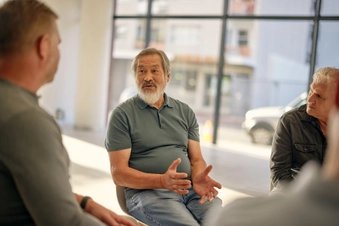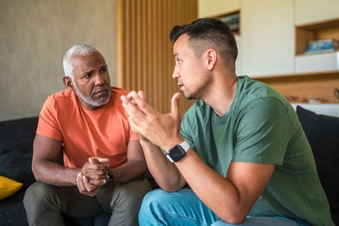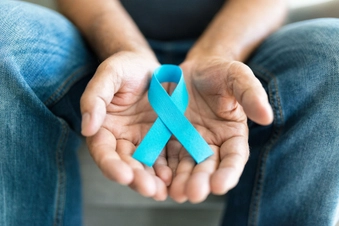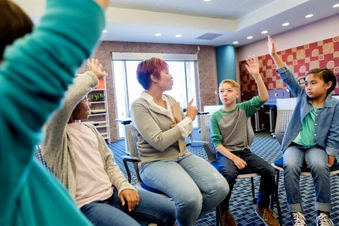For Patients and Caregivers: The Benefits of Finding Support Within the Prostate Cancer Community

Care for the Caregiver
If you’re a supporter for someone with prostate cancer, you need support, too. Being around other people who know the challenges of caregiving gives you a community of advice and understanding. Both the Prostate Cancer Foundation and Cancercare offer resources and support for caregivers.

Peer-to-Peer Connection
It’s not uncommon to feel self-conscious talking about your body. This may be especially true if you have prostate cancer. Some men feel most comfortable talking to other men about their diagnosis. A support group can give you these connections.

People Who “Get It”
You may find it difficult to open up to your friends and family – even those you feel closest to – since they don’t live with prostate cancer. A prostate cancer support group gives you access to people who have had a similar journey. This may encourage you to share your stories and questions.

Plenty of Options
Prostate cancer support comes in many forms — online, in person, over the phone, peer-to-peer, and more. Find the one that feels most natural for you. You may even prefer not to share your name or to stay anonymous at first, which is possible through online groups.

Stress Reduction
Boosting your mental health as you deal with your physical health is a huge part of your overall care. Engaging with support in the prostate community eases feelings of loneliness, anxiety, and sadness.

Practical Advice
At a most basic level, connecting with others living with prostate cancer is a great way to talk about the ins and outs of your symptoms, treatment, and other day-to-day aspects of the disease. You may gain valuable advice and tips.

Empowerment
Support groups can be a big source of motivation and strength when it comes to asking for what you need from caregivers and your health care team. Being around others in the same boat can teach you new ways to stand up for yourself and take ownership of your health and wellness.

Financial Tips
You may face challenging times with medical bills and other costs. Through others, you can find resources to help with financial issues. You can also learn good questions to ask your insurance company when it comes to your coverage.

Advocacy and Action
Whether it’s through fundraisers, lobbying for new research funding, or advocating for better access to treatment, the prostate cancer community can be a great source of connection. This can give you a sense of purpose and meaning.

Research Opportunities
There are many prostate cancer treatmentclinical trials available. You can find them at the Prostate Cancer Foundation or ClinicalTrials.gov. The prostate cancer community is one source for learning about when these opportunities become available and how you can find out more information.

Support for Kids
Groups focused on the well-being of children can be a great source of connection for kids who have a loved one with cancer. Ask your doctor or other people you know with prostate cancer for recommendations. Cancercare also has resources for kids of parents with cancer.

Hope
When you live with cancer, there are a lot of unknowns. Hope can help you carry on through hard days. Through community, you can lean on others for hope when yours is hard to find. This can help you hold a better mindset for the next day, the next treatment, and the next positive outcome.
Show Sources
IMAGES PROVIDED BY:
1) DigitalVision/Getty Images
2) E+/Getty Images
3) E+/Getty Images
4) DigitalVision/Getty Images
5) DigitalVision/Getty Images
6) Stone/Getty Images
7) DigitalVision/Getty Images
8) E+/Getty Images
9) iStock/Getty Images
10) DigitalVision/Getty Images
11) E+/Getty Images
12) Westend61/Getty Images
SOURCES:
CancerCare: “Support Groups for Caregiving,” “Prostate Cancer Patient Support Group,” “Ask CancerCare.”
Prostate Cancer Foundation: “Support Groups,” “Take Action Against Prostate Cancer,” “Prostate Cancer Clinical Trials.”
Health Expectations: “Men's experiences of receiving a prostate cancer diagnosis after opportunistic screening—A qualitative descriptive secondary analysis.”
Cureus: “Prostate Cancer Support Groups: The Unadvertised Camaraderie.”
Zero Prostate Cancer: “Find a support group.”
Stanford Medicine: “Hope as a Strategy.”